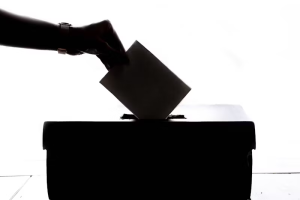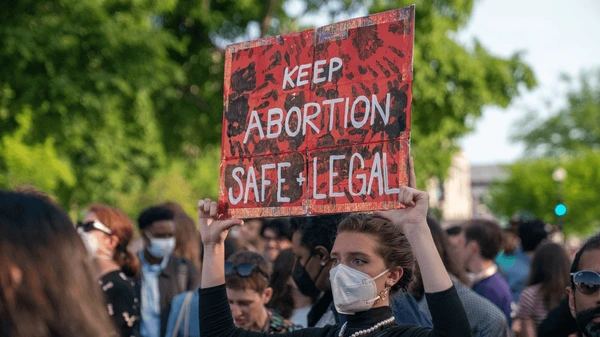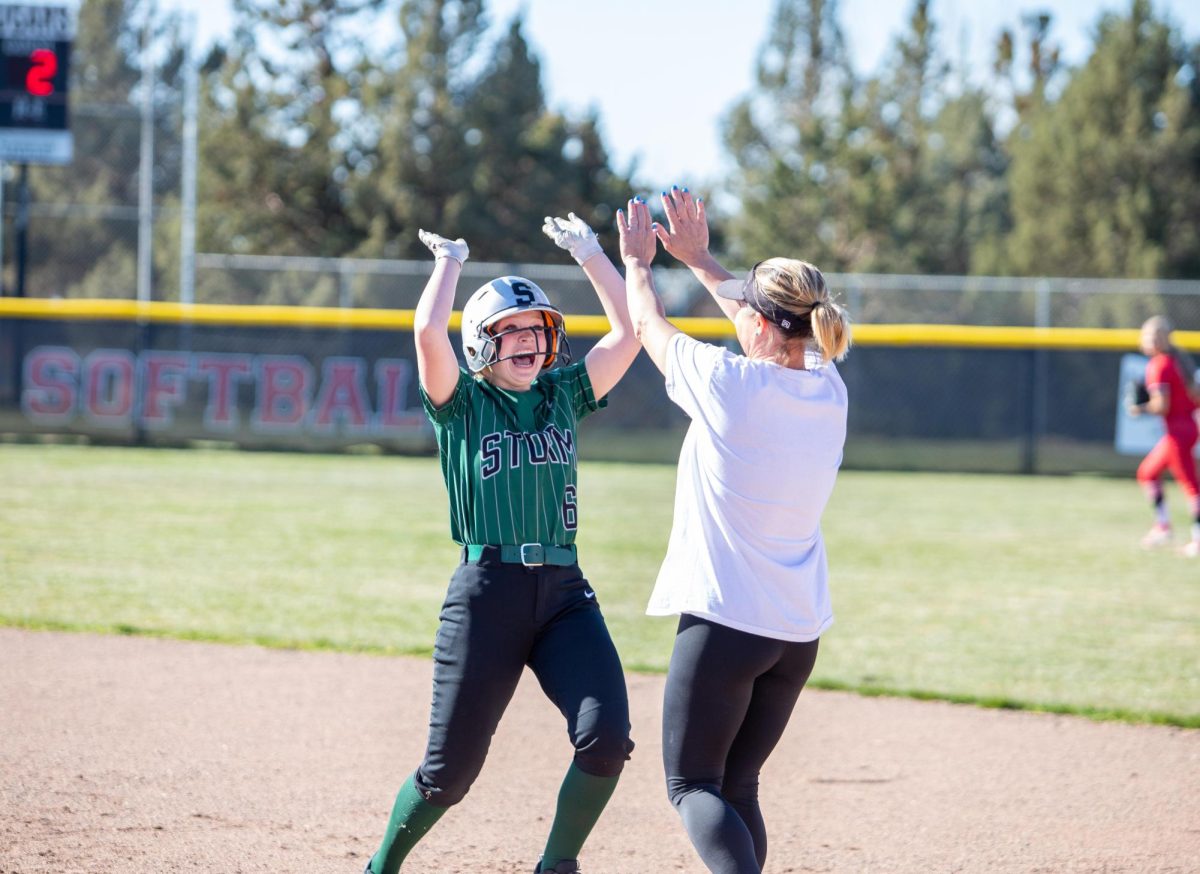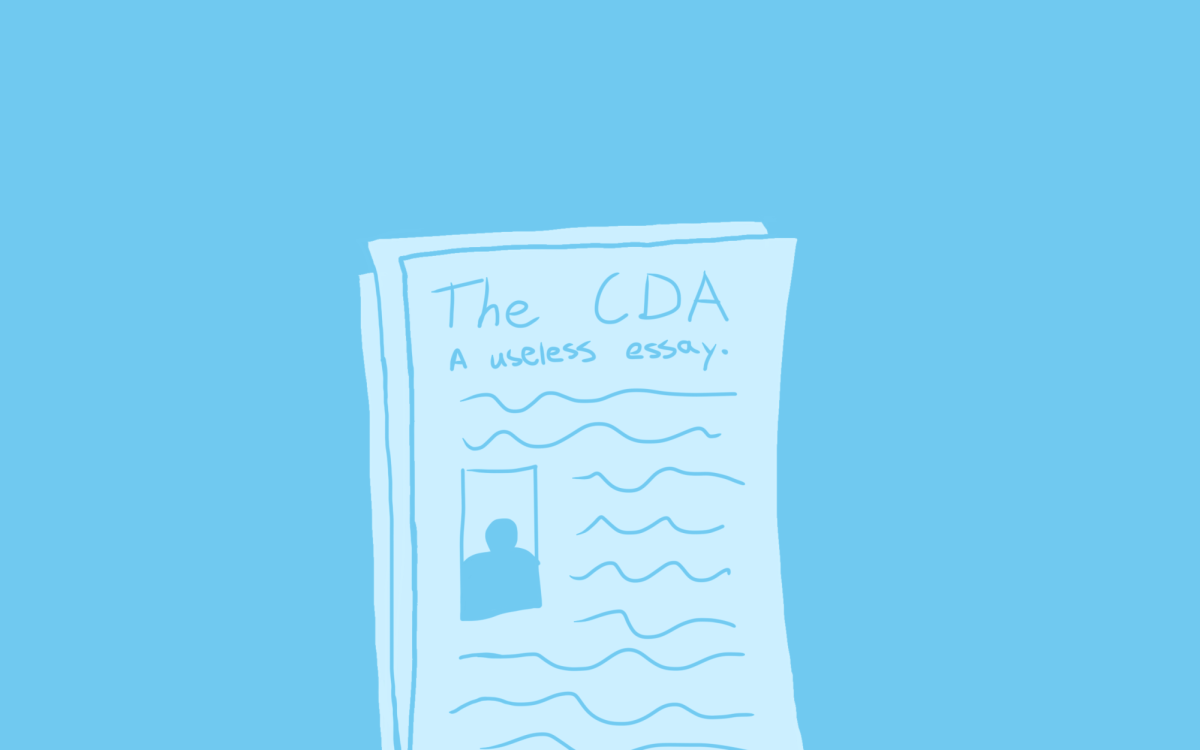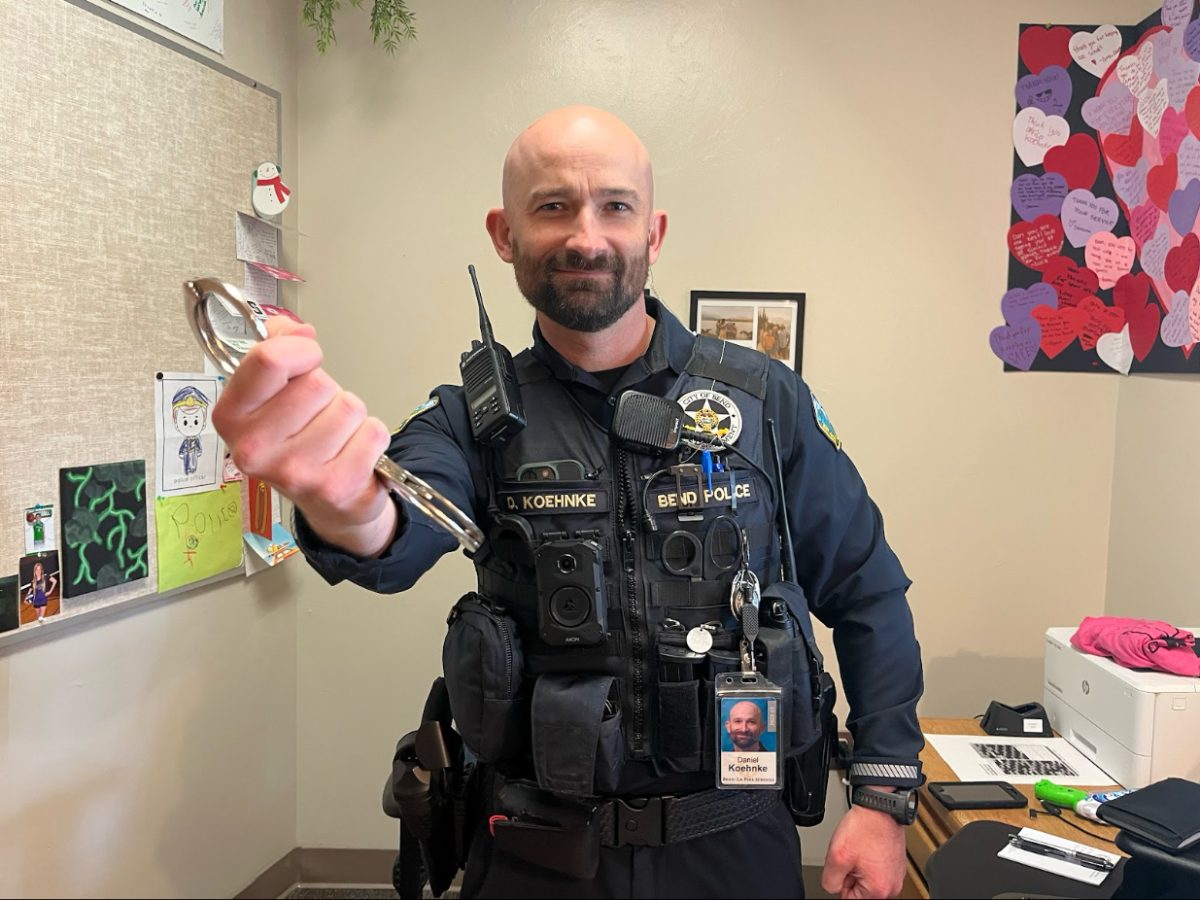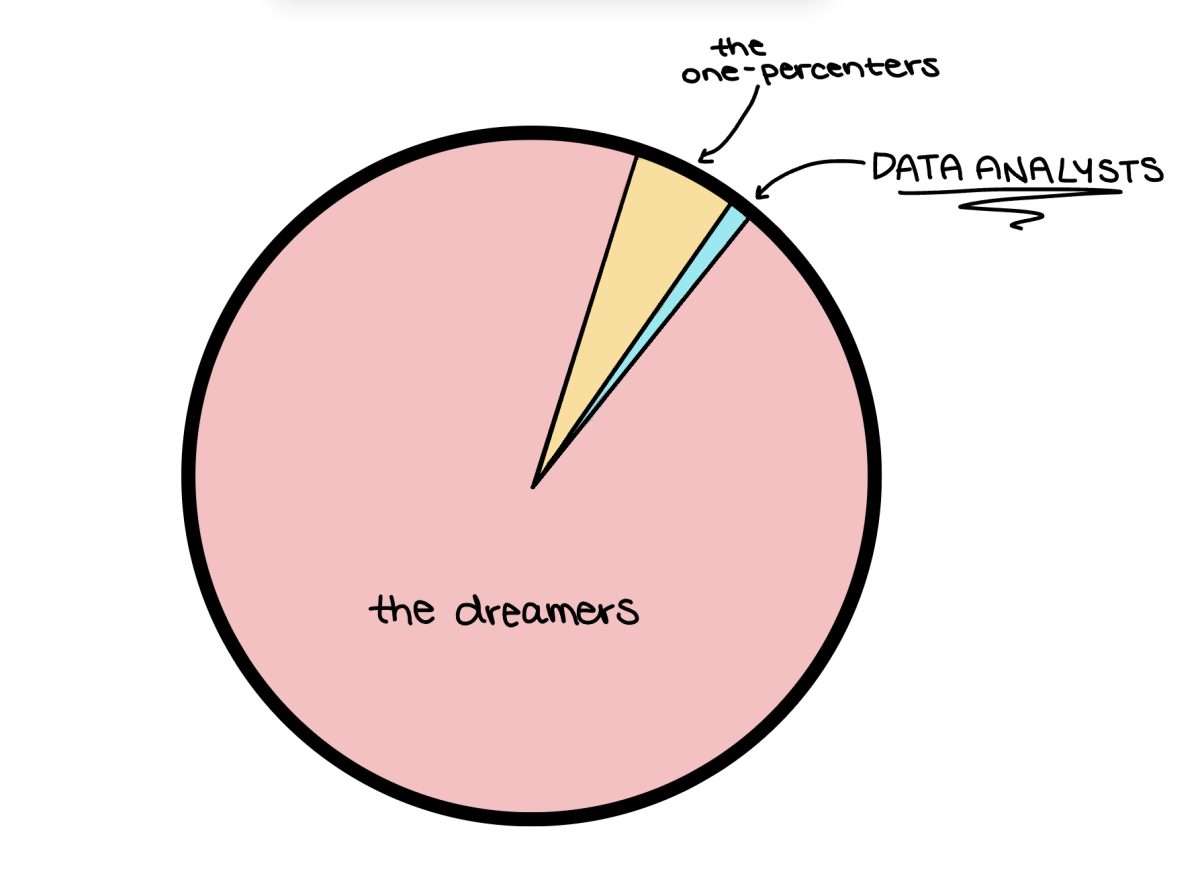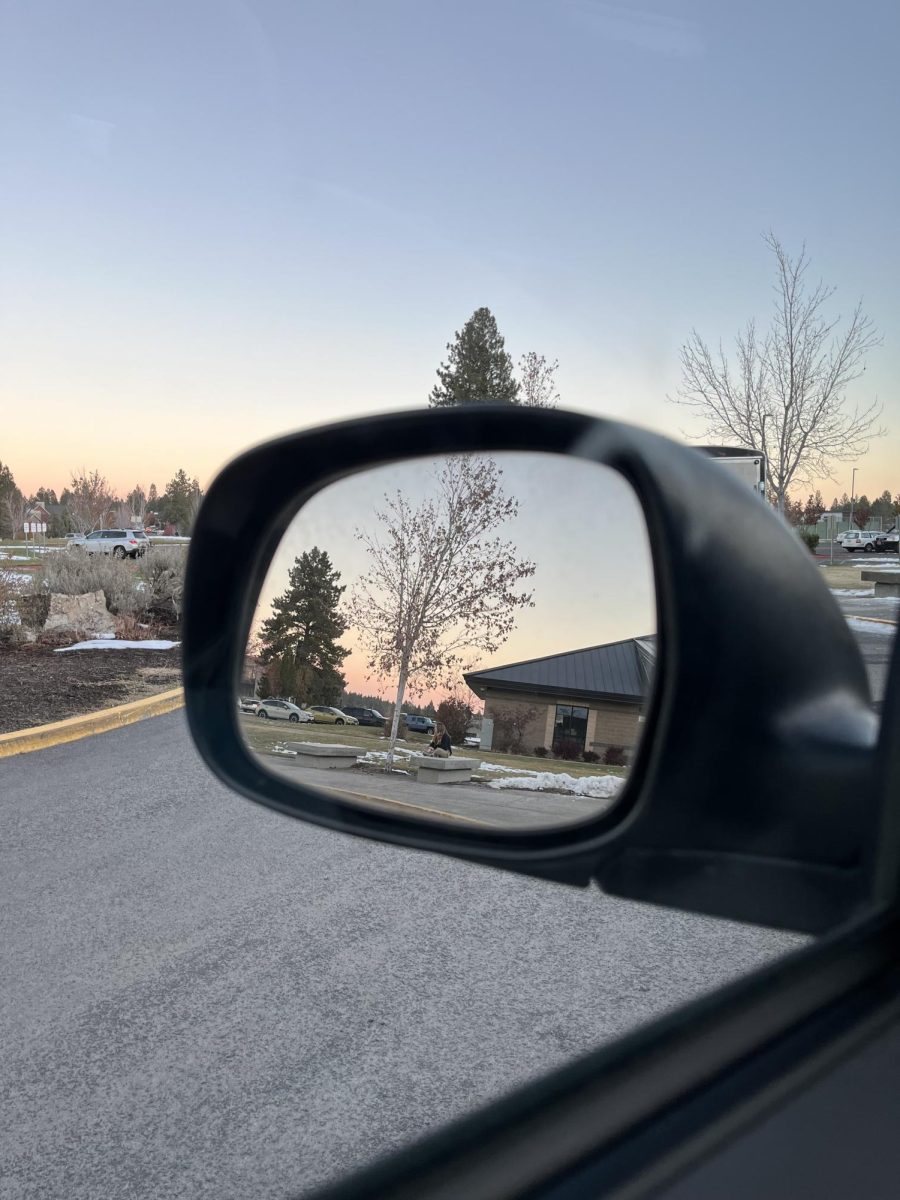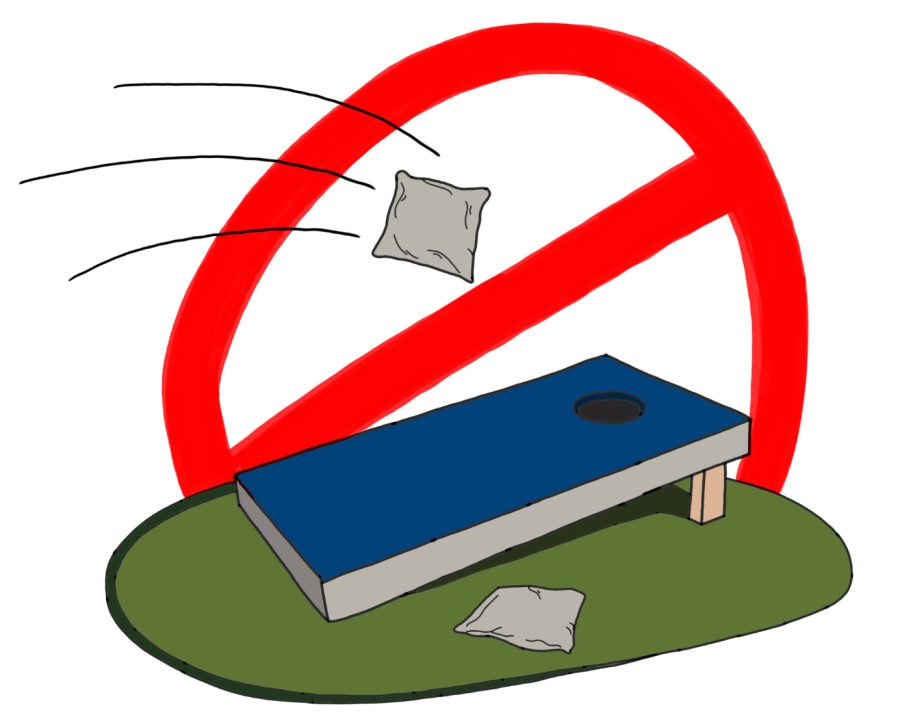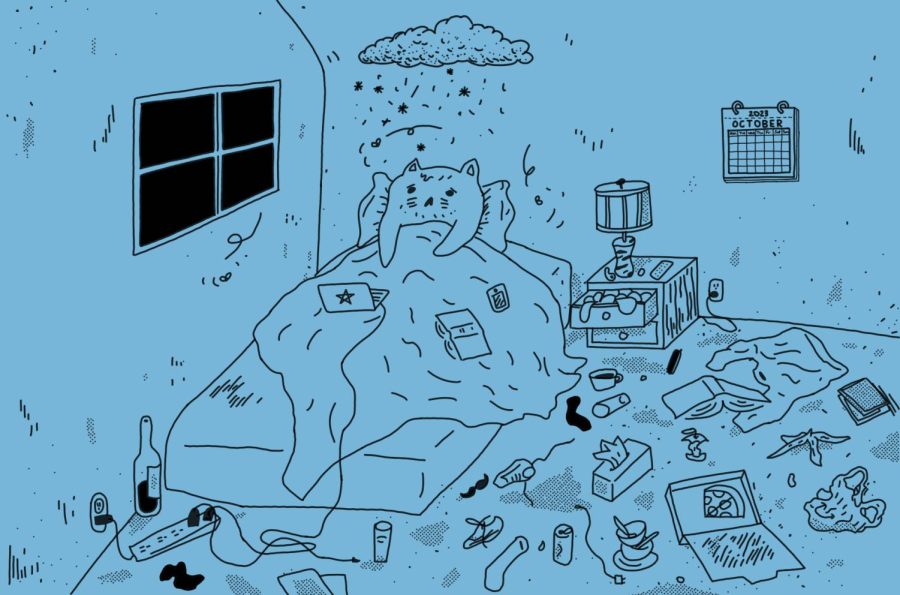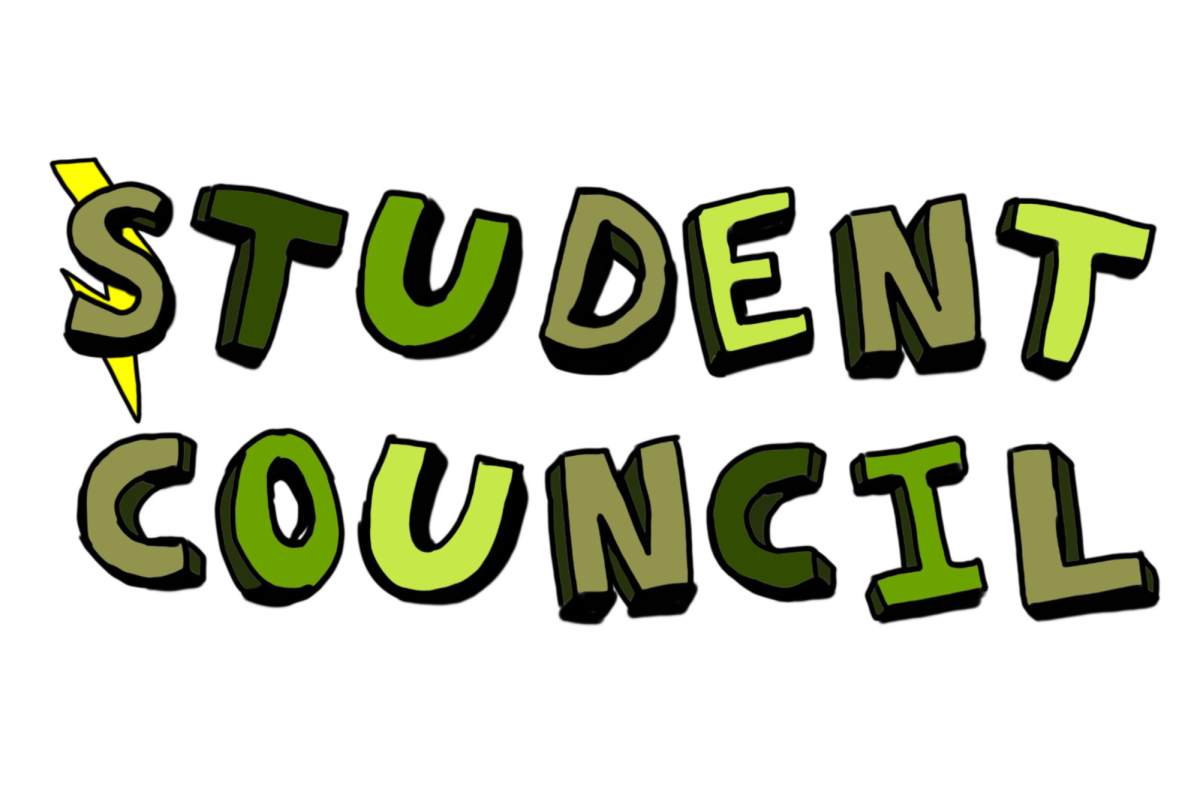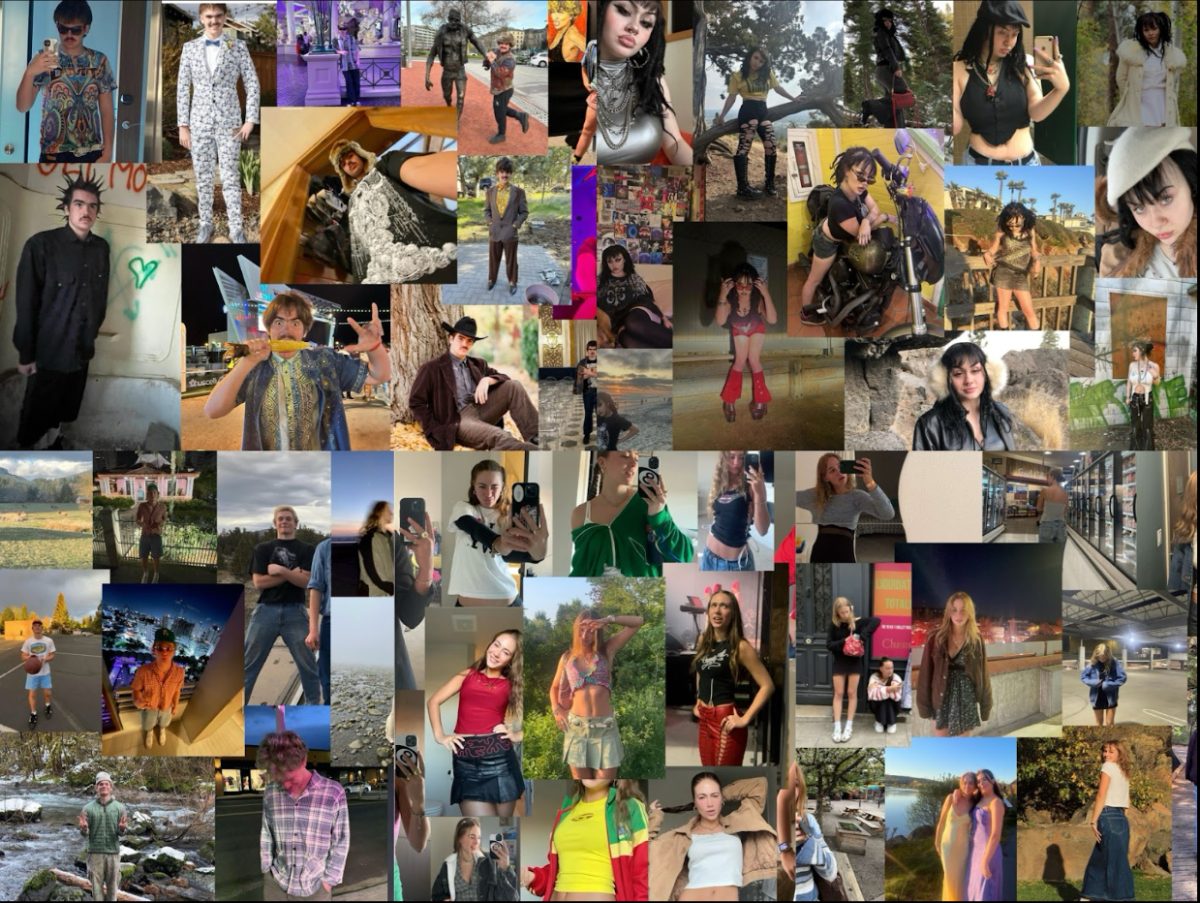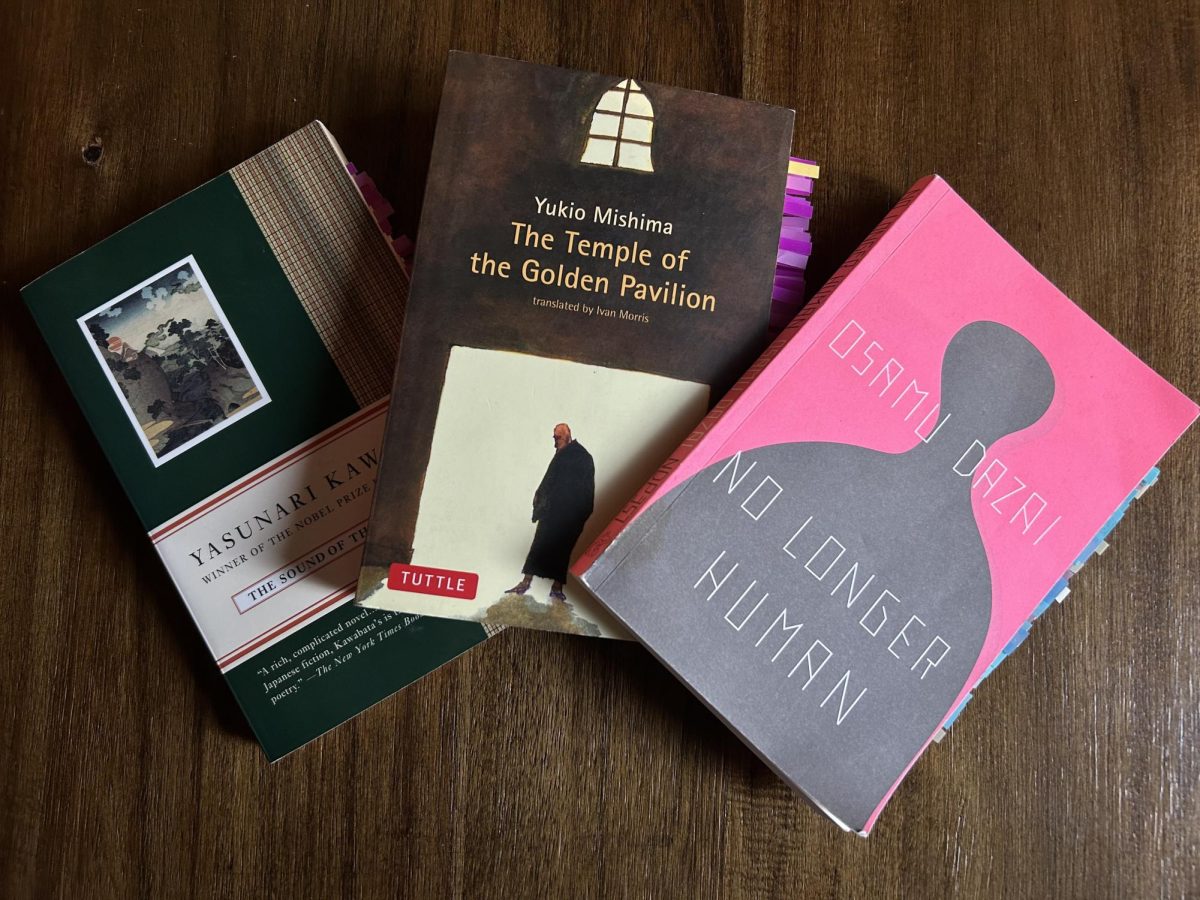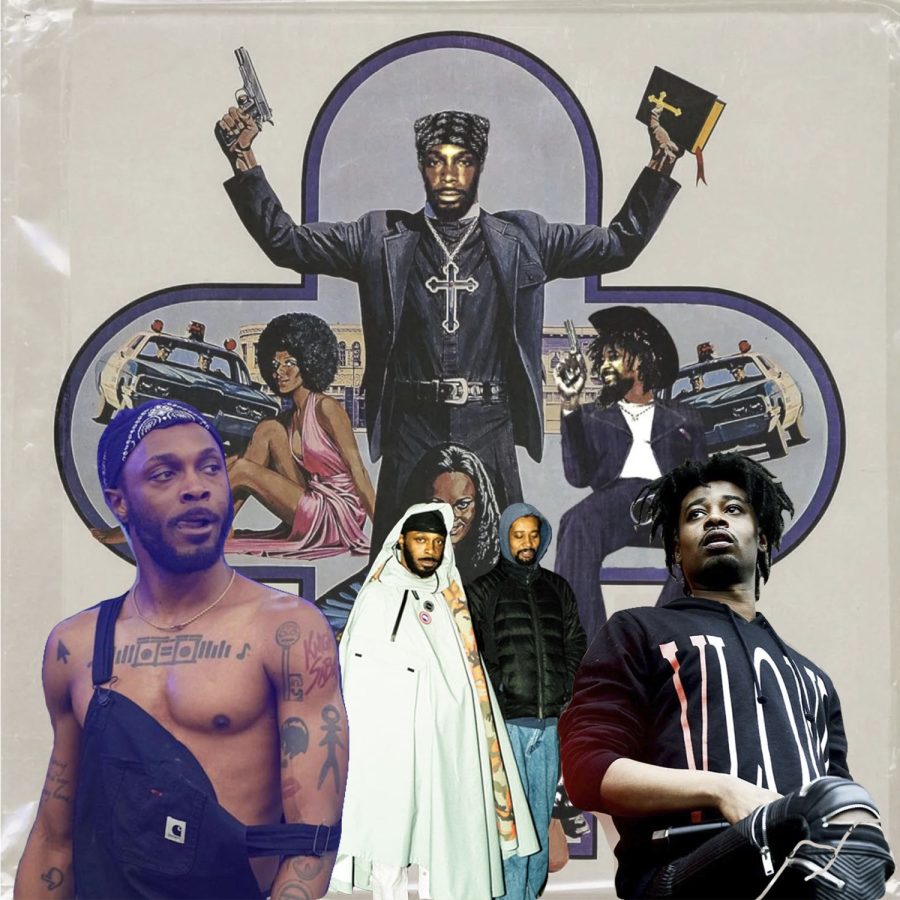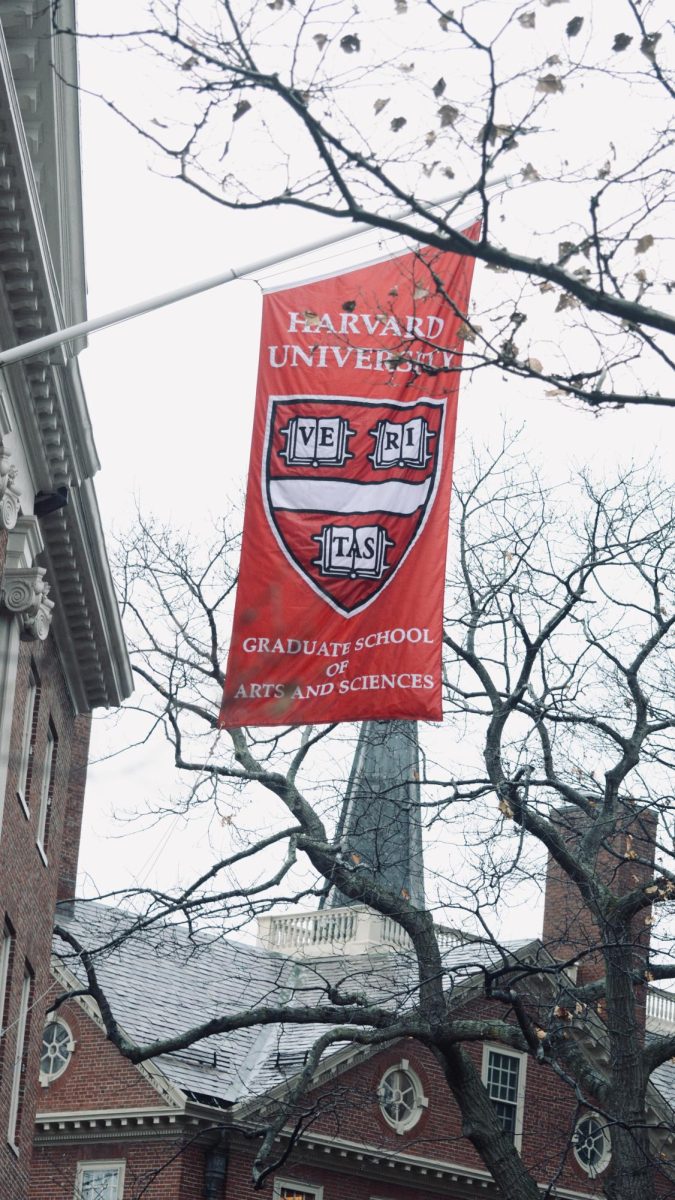It’s early afternoon on the campus of UCLA. The great walkways and halls of the school are bustling with activity as students hurry to and from classes and dorms. Outside, in one of the campus’s many courtyards, a bullhorn cuts through the low din of daily activity. “Beat that f-ing Jew!” a woman shouts. She is surrounded by a swath of UCLA students, and a chant rings from the crowd: “Free Palestine!” In the center of the mob is a piñata bearing the face of Israeli Prime Minister Benjamin Netanyahu, and the students take turns beating the piñata with bats and fists, cheered on by their enraged peers.
The students are protesting the Israeli ground invasion of the Gaza Strip and the U.S. support backing it. Since Israel’s counterattack following the Hamas massacre on Oct. 7, over 17,000 Palestinians have been killed, many of whom were women and children. Israel has made frequent use of indiscriminate airstrikes in an attempt to neutralize Hamas terrorists, but has, as a result, killed an inordinate number of innocent Palestinian civilians.
The fallout from the Israel-Palestine conflict has sparked a political firestorm which is, of course, extremely partisan.
The UCLA incident isn’t an abnormality. That same week, a seminar on the crisis in Palestine was forced online after a torrent of threats from UCLA students. At UC Davis an assistant Professor made a colorfully threatening tweet targeting “Zionist Journalists,” in which she used weapon and blood emojis, stating that “They have houses (with) addresses, kids in school” and that “They may fear their bosses, but they should fear us more.” At Drexel University a Jewish student’s dorm room door was even set on fire.
This surge of antisemitism has prompted a massive call for universities to take steps to prevent hate speech and violence toward the minority group. The backlash was so intense that many faculty members across a number of colleges have stepped down under pressure from the public. In particular the Presidents of Harvard, University of Pennsylvania and M.I.T landed in hot water after their evasive answers to questions on whether they would discipline calls for Jewish genocide within their student bodies.
The argument from some colleges and their supporters is that universities are meant to be open marketplaces of ideas. They argue that censoring speech would hamstring the ability of students to debate and share ideas. Many others feel that this kind of behavior goes beyond free speech and is not conducive to a productive discourse or a safe environment for students. The true debate is hard to find, as politically interested parties continue to sensationalize the events both in colleges and overseas in an attempt to push their own narratives. Regardless, the antisemitic behavior in colleges is very real and as of yet the question of how to approach remains unanswered.
Free speech, a uniquely American ideal, is the basis of defense for the actions of those students and university leaders involved in events of antisemitism on campus, whether it be during a protest or deliberately attempting to harm a Jewish peer. However, there doesn’t seem to be a clear-cut definition of which forms of speech the First Amendment protects, particularly on college campuses. Free speech is a constitutional right meant to allow free expression and sharing of ideas, but threats and harassment can elicit criminal charges and further marginalize the people and groups they are directed at.
In fairness to those who champion the free speech absolute, an overabundance of censorship does hinder the ability for students to have their views challenged. It is harmful to have a hateful and volatile environment on university campuses but equally harmful is an uncritical echo chamber that brands students with opinions and morals rather than providing a forum for them to craft their own.
In addition, even though many of these universities are private, meaning they could regulate speech without issue, limiting speech is a slippery slope. It may be simple enough to limit hateful and outright bigoted speech, but once the precedent is set it isn’t guaranteed that the censorship will stop there. It’s also important to remember that speech is never universally offensive. A phrase or expressed belief may be innocuous to some and profoundly insensitive to others. Since it’s next to impossible to safely and sensitively draw a line when it comes to speech, any regulation of speech is dangerous and should be heavily scrutinized.
It is written in the First Amendment of the United States Constitution that “Congress shall make no law…abridging the freedom of speech.” This even applies to hate speech, unless it contains targeted threats towards a certain group. However, many of the on-campus protests, whether pro-Israel, pro-Palestine, or anti-war, do contain direct threats towards Jewish people. At Cornell University, the FBI was alerted to a series of online death threats made by a student against his Jewish peers, and at University of Maryland, the words “Holocaust 2.0” were written in chalk on a campus sidewalk. This certainly fits the definition of criminal hate speech, and it’s no wonder that only 39% of Jewish college students feel comfortable disclosing their religious affiliation at school.
Summit junior Audrey Hynes, who is Jewish, feels this fear as she begins to plan for college. “I’m in the middle of the college process right now, and there’s a lot of places that [I’m not] really comfortable with applying to,” said Hynes.
Former UPenn president Elizabeth Magill said in her controversial Congressional hearing that whether or not the use of the word intifada, Arabic for “rebellion” or “uprising” and commonly interpreted as a call for violence against the Jews, would be considered harassment is “a context-dependent decision.”
We have considered the context—the rampant anti-semitism on college campuses has left the realm of free speech and morphed into something far more serious and beyond the protections of the First Amendment. Whether you support Israel or Palestine is a personal choice, but it is no excuse for the threatening behavior running rampant in our system of higher education. The oppression of Palestinians and Muslims is not an excuse to oppress Israelis and Jews.
The silence of these universities further perpetuates the potentially harmful effects of these events. Many of the schools involved are private institutions, giving them full power to put an end to any picketing, and more importantly antisemitism or racism. Beyond this, for public and private universities alike, isn’t it their responsibility to protect students in order to uphold their true purpose of education?
By ignoring these incidents, many universities have caused tension between themselves and their students as trust is broken and people feel increasingly unsafe on campus. Several university presidents were invited to a hearing discussing antisemitism on campus, which led to major changes like the University of Pennsylvania President M. Elizabeth Magill promptly stepping down after apparently dodging questions on punishment surrounding students promoting antisemitic ideas.
This is just one example of many instances in which concerned students and civilians were looking to the head of these universities to speak out against the onslaught of antisemitic rhetoric being spread around campuses, but many were left greatly disappointed.
So where exactly did these Presidents go wrong? Restricting only certain guest speakers, penalizing some individuals for harmful speech while turning a blind eye for others, enacting zero-hate policies but failing to enforce them regularly — these moves are problematic. To call these highly educated university leaders outright antisemitic would be a stretch, as the explanation for their actions is much more complicated. These leaders dug themselves into a hole by failing to stay consistent. Without a solid backbone that makes policies and regulations clear, universities find themselves in a gray area that leads to biased and inconsistent treatment.
It’s clear that blurred lines have backed these leaders into a corner. They can’t penalize those who participated in antisemitic protests without backlash concerning free speech, but their inability to stand up for students causes a loss of faith and a huge dent in the reputation of these esteemed institutions.
Higher education institutions, while meant to allow students to think freely and express themselves, also have a responsibility to commit to a vision. All universities have a mission statement, and it’s their job as a platform for higher education to create a clear path to achieve that mission. Without a backbone that shows young adults the way to accomplish the university’s vision, students are left to their own devices. Do you think the best way for UCLA students to achieve their mission of creating, disseminating, preserving and applying knowledge to better our society was to beat a pinata of Israel’s prime minister? No. Did the president say anything? Reprimand anyone? No. When given so much freedom all at once, people (especially young adults) don’t often understand how to express their ideas and beliefs in a safe, structured, respectful way.
The question is not whether or not students should be subjected to difficult or upsetting viewpoints, but how these kinds of concepts can be shared safely.
The problem here is structure. Without structure and regulation, harmful ideas can lead to harmful actions. The truth is, like many ideologies of hate, many of these anti-semetic viewpoints piggyback on other American insecurities and discontentment. Issues with our foreign policy, frustration with America’s jingoistic and imperialist tendencies. This classic recipe has also likely been exacerbated by the increasing political polarization across America which is, conveniently, often concentrated in colleges. It’s an old story; a large disaffected or discontented group, filled with anger and confusion is given a target—in this case Israel and Jewish culture—on which they project their rage.
This kind of predatory hatred quickly vanishes when the hateful viewpoint is adequately challenged, especially in educated landscapes like university. If a college wishes to allow dangerous rhetoric, they should restrict it not through punishment but through education and debate. Schools should invite speakers from opposite sides of a debate regularly, current issues should be integrated into curriculums and taught from an educated, neutral standpoint, students should be encouraged—or required—to participate in debates in which they adopt a viewpoint separate from their own.
Instead of allowing students to act and speak unreasonably, restrict these hateful ideas to panels and opt-in lectures. Force a conversation, that is after all the main motivation behind most colleges free speech tenets.
The key to this is avoiding a mob mentality, these bigoted or regressive beliefs are far more harmful when they fester unchallenged.




